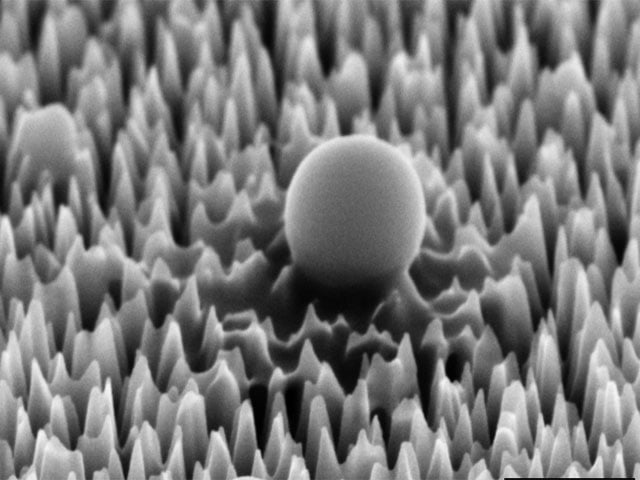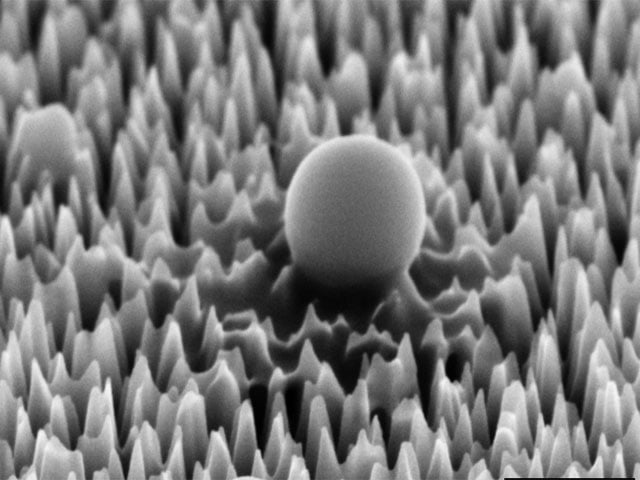Melbourne: An international team of researchers has created an anti-viral surface that could help prevent the spread of disease in hospitals, labs and other critical environments.
This silicone surface is covered with microscopic needles that trap the virus.
Tests with HPV, the virus that causes bronchitis, pneumonia and sore throat, showed that 96 percent of the viruses were either broken or severely distorted after sticking to the silicon surface. After which they could no longer replicate to spread.
These impressive results, published in the nanoscience journal ACS Nano, suggest that this material could be helpful in controlling the transmission of dangerous biological viruses in laboratories and healthcare settings.
Corresponding author of the study Dr Natalie Borg, from RMIT’s School of Health and Biomedical Sciences, said the seemingly simple idea of trapping viruses in fine needles would require technical expertise.
They said that this virus-killing surface looks like a spot of black mirror, but in reality, it has very fine needles embedded in it to kill viruses.
These needles are two nanometers thick (30,000 times thinner than a human hair) and 2090 nanometers long.
(function(d, s, id){
var js, fjs = d.getElementsByTagName(s)[0];
if (d.getElementById(id)) {return;}
js = d.createElement(s); js.id = id;
js.src = “//connect.facebook.net/en_US/sdk.js#xfbml=1&version=v2.3&appId=770767426360150”;
fjs.parentNode.insertBefore(js, fjs);
}(document, ‘script’, ‘facebook-jssdk’));
(function(d, s, id) {
var js, fjs = d.getElementsByTagName(s)[0];
if (d.getElementById(id)) return;
js = d.createElement(s); js.id = id;
js.src = “//connect.facebook.net/en_GB/sdk.js#xfbml=1&version=v2.7”;
fjs.parentNode.insertBefore(js, fjs);
}(document, ‘script’, ‘facebook-jssdk’));




